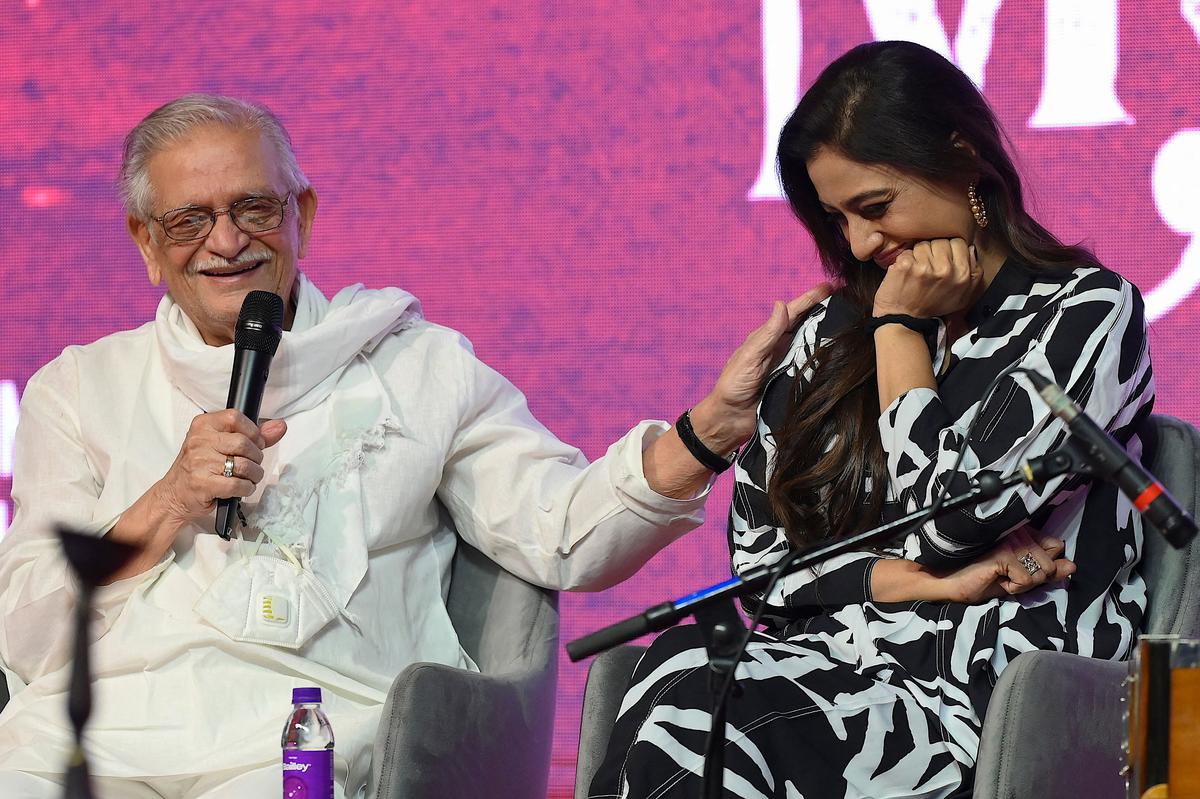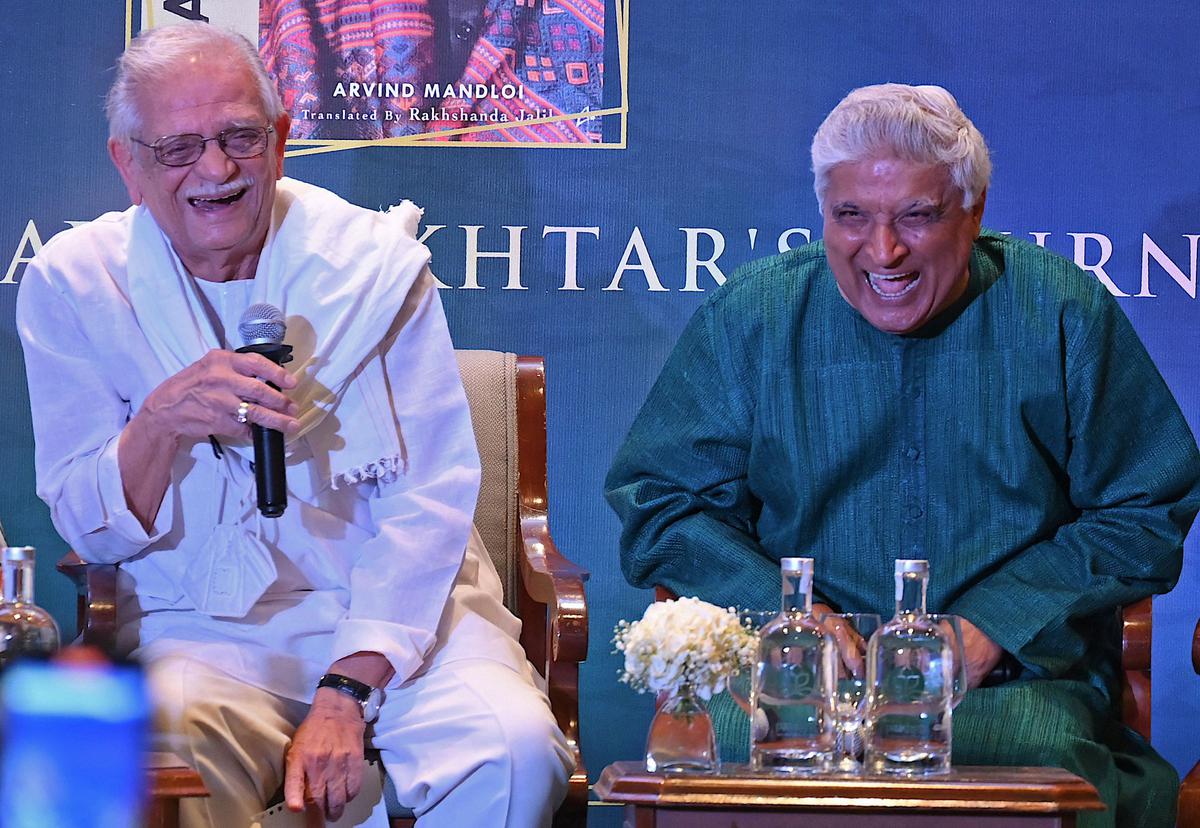Gulzar’s nazms for children: ‘If you observe them, you will want to engage with them and listen to them’
From the poetic Sa Re Ke Sare Ga Ma Ko Lekar ( Parichay, 1972) and the irreverent Masterji Ki Aa Gayi Chitthi ( Kitaab, 1977), to prayers like Hum Ko Man Ki Shaki Dena, Man Vijay Kare ( Guddi, 1971) and Ae Watan ( Raazi,2018), Gulzar, over the years, has also built a repertoire of songs devoted to the innocent, impish and idealistic side of childhood.
After Jungle Book and Potli Baba Ki defined entertainment for kids on Doordarshan , Gulzar has now penned an anthem for Nickelodeon, the television channel for children.
In an interview with Today News 24, the master songwriter says he sees himself as an intermediary between a child and the parents, because he wishes to save the mother tongue through his songs. “If I won’t,” he says, “children will soon lose out on words like bichhoo and chhipkali because their parents use ‘scorpion’ and ‘lizard’ in daily conversations. So is it with games like Pithu (seven stones) that defined our childhood.”
He says translated words in English fail to capture the nuance of the original. He cites a word like utavali , for which ‘hurry’ and ‘haste’ are lost in translation. It is like, he says, when a friend comes home, we can offer packaged coconut water, but it will not taste the same as fresh coconut water, fetched from a tree in the garden. “This fresh nariyal pani is like our mother tongue.”
Indian urdu poet, lyricist and screenwriter Gulzar
| Photo Credit:
SUJIT JAISWAL
“There was a time when I wrote for my daughter, and then I started writing for my grandson,” says Gulzar, adding that he finds a huge change in the metaphors and language of the two generations and, therefore, keenly keeps a connection with children through his writings. “You can no longer tell children to focus like Arjun who could hit an arrow in a fish eye, because bows and arrows are not present in a child’s immediate environment now. “
He says that as he watched his daughter and the children of his close relatives grow up, it reflected in his writing. “If you observe them, you will want to engage with them, listen to them. And if you notice, they do not want to listen to platitudes like they are the future of the country, and so on..” he grins.
The great raconteur that he is, Gulzar recollects how once director Shaad Ali did not believe Hum Ko Man Ki Shakti Dena was written by him. Composer Shankar Mahadevan believed it to be a folk song that was adapted into the film and is played as a morning prayer in many schools. Gulzar says, “When I narrated this to Hindi litterateur Kedarnath Singh, he said, ‘Gulzar you should be proud that the song has become bigger than you. It now belongs to the world.’ And I made peace with the fact.”

Gulzar (L) and actress Tabu attend a promotional event of their upcoming Indian Hindi-language action thriller film ‘Kuttey’ in Mumbai
| Photo Credit:
SUJIT JAISWAL
Gulzar has just completed A Poem A Day, a collection of 365 contemporary poems that he selected and translated. It took him nine years to sieve through the works of 279 poets in 34 languages. An authority on Tagore, he is now exploring the poetry of poet philosophers Kazi Nazrul Islam and Lalon Shah or Lalon Fakir, whose works he translated into Hindi for a performance with classical vocalist Ajoy Chakraborty, for a National Centre of Performing Arts programme. The lyricist underlines that the word dharam he used in the prayer was in reference to actor Dharmendra on whom Guddi had a crush in the film.
This is the beauty of Gulzar’s writing. His songs not only work in the given situation of the film and provide a sense of the world the narrative is set in, but also have the power to stand out that keep them relevant for generations. The prayer works as it reaches out to a formless divine and tells children to first believe in themselves: “Doosron Ki Jai Se Pehle Khud Ki Jai Karen.”

Gulzar (L) attends the book launch ceremony of the Indian poet, lyricist and screenwriter Javed Akhtar’s (R) journey titled ‘Jadunama’ in Mumbai
| Photo Credit:
SUJIT JAISWAL
However, there are songs that Gulzar feels should have ceased to be relevant long ago. One of them is “Haal Chaal Theek Thak Hai” from his first directorial venture ( Mere Apne, 1971). The song makes a stringent comment on unemployment and law and order when it says, “M.A. Kiya Hai, B.A. Kiya Hai, Lagta Hai Woh Bhi Ainvayi Kiya Hai, Kaam Nahin Hain Warna Yahan.” “
It hurts me that our country has not been able to get over these pernicious issues in the last 50 years and the song still makes sense,” he says.
“Poetry is not just for syllabus; it must be woven in life. People living in such a diverse nation could easily learn at least five languages. I am learning Malayalam to understand two of my favourite writers, (Vaikom) Basheer and K. Satchidanandan better,” Gulzar signs off.


